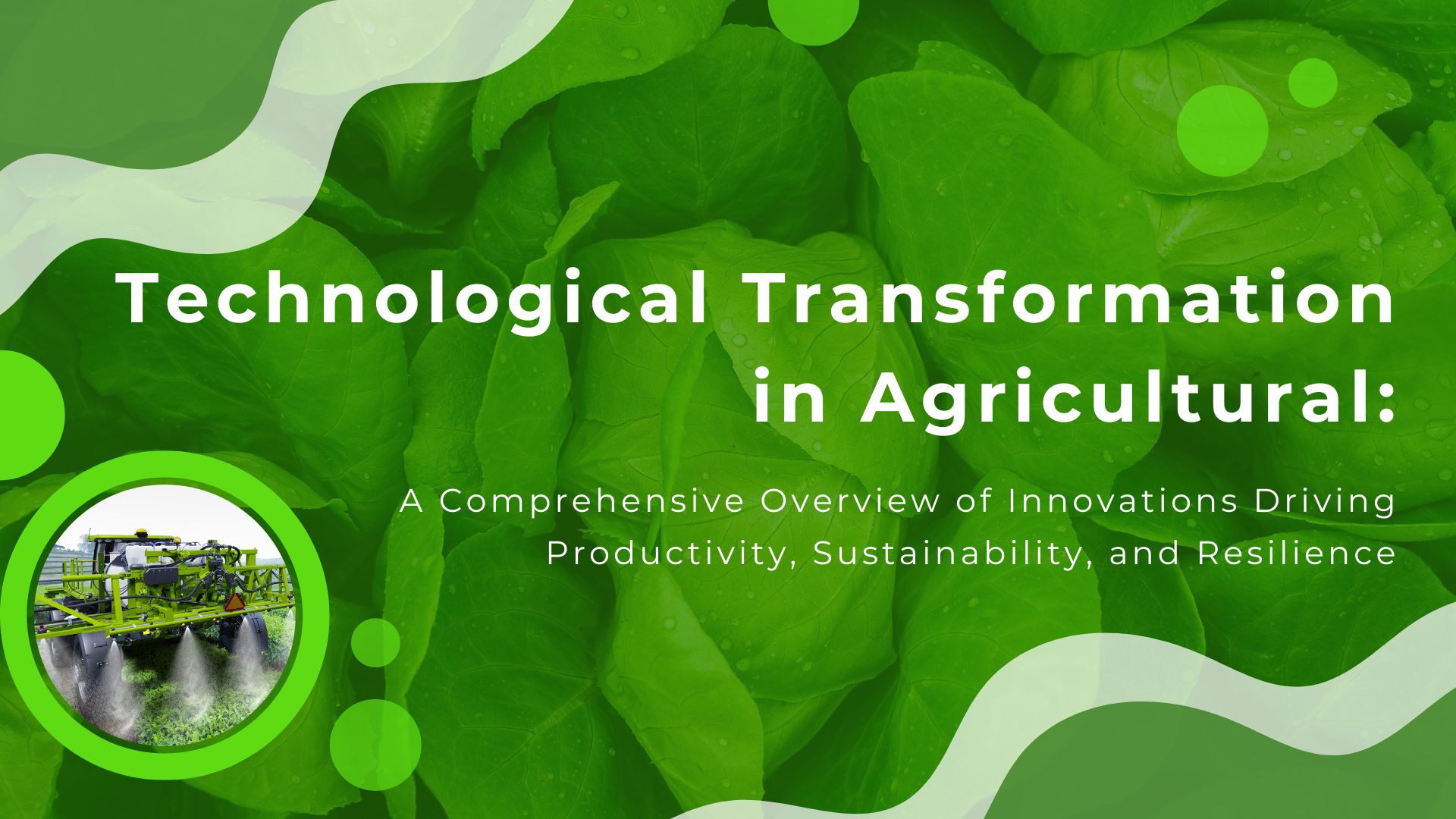
Technological progress has played a crucial role in transforming and improving various aspects of agriculture. These advancements have significantly impacted productivity, efficiency, sustainability, and overall agricultural practices.
Key contributions of technological progress in agricultural .
Increased Productivity
Precision Farming: Technologies such as GPS-guided tractors and drones enable farmers to optimize field-level management with precise control over inputs like water, fertilizers, and pesticides.
Mechanization: Modern agricultural machinery and equipment, including tractors, harvesters, and planters have increased the efficiency of farming operations, leading to higher yields.
Crop Improvement
Biotechnology: Genetic engineering has led to the development of genetically modified (GM) crops with improved resistance to pests, diseases, and environmental stress, contributing to higher crop yields.
Crop monitoring: Satellite imagery sensors and data analytics allow farmers to monitor crop health, identify potential issues, and take corrective actions in real time.
Water Management
Drip Irrigation: Precision irrigation systems optimize water usage by delivering water directly to the root zone reducing water wastage and improving crop yields.
Smart Irrigation: Sensor technologies and data analytics help farmers monitor soil moisture levels and weather conditions, enabling more efficient irrigation practices.
Information Technology
Farm Management Software:
Farmers can now use software applications to track and manage various aspects of their operations, including inventory, finances, and crop planning.
Market Access:
Digital platforms and mobile apps connect farmers with markets, providing real-time information on prices, demands, and supply, helping them make informed decisions.
Sustainable practices
Agrochemical Efficiency:
Precision application of fertilizers and pesticides reduces environmental impact and minimizes input cost.
Organic Farming Techniques:
Technology supports the development of sustainable and organic farming practices promoting soil health and biodiversity.
Climate Resilience
Climate Resilient crops: Research and biotechnology contribute to the development of crops that can withstand extreme weather conditions, helping farmers adapt to climate
change.
Supply Chain Efficiency
Blockchain Technology: Enhance transparency and traceability in the supply chain reducing fraud and ensuring the authenticity of agricultural products.
Logistics Optimization: Technology facilitates efficient transportation, storage, and distribution of agricultural products, minimizing post-harvest losses.
Training and Education
E-Learning Platforms: Farmers can access online resources and training programs to enhance their knowledge of modern agricultural practices, improving overall efficiency.
The ongoing integration of technology into agriculture often referred to as “AgTech” Continues to derive innovations that address global challenges such as food security, resource scarcity, and environmental sustainability.
“The future of agriculture is not
input-intensive, but knowledge
intensive”.
Signup For AgriNext Conference Newsletter

